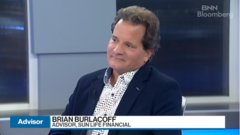Dec 11, 2019
Darren Sissons' Top Picks: Dec. 11, 2019
BNN Bloomberg
Full episode: Market Call for Wednesday, December 11, 2019
Darren Sissons, vice-president and partner at Campbell, Lee & Ross
Focus: Global equities and technology
MARKET OUTLOOK
Unfortunately, the markets are still deeply mired in the continuing geopolitical and trade sagas. These recurring challenges are the dominant market thematic.
Donald Trump and the broader Republican Party will do their utmost to get re-elected next November. As politicians fully appreciate, investors frequently vote with their wallets, so Republicans will need a strong economy to get re-elected. Constituent-friendly giveaways, supportive regulation, political pressure for the Federal Reserve to maintain ultra-low interest rates and possibly a major China trade announcement by the U.S. president are high probability occurrences in 2020. Collectively, these events support a constructive outlook for the markets.
The key risks for investors are unintended consequences and U.S. policy errors. Should the president be unable to finalize a deal with China (ignore false Twitter claims for the moment), should fearful investors adopt a wait-and-see investment strategy and raise cash levels further, should CEOs continue delaying capital expenditures, or should the Democrats mount a credible election campaign, then market volatility will spike. Given the above, investors should appreciate the supportive market outlook but be mindful of the fragility of the global economy as ultra-low interest rates remain in place today and with a full recovery from the ravages of the Financial Crisis yet to happen.
For those looking for value, markets outside the U.S. are favoured. European companies, especially drug and pharmaceutical companies with a hefty U.S. exposure generally had a strong 2019 due largely to the weak euro/U.S. dollar exchange rate. Likewise, exporting nations such as South Korea and Taiwan as well as Hong Kong for the more daring offer Canadian investors good value. Minerals are also inexpensive, but need a catalyst like a China-U.S. trade truce to work.
Given the above, adding a defensive tilt now to portfolios makes sense as does adding exposure to out-of-favour sectors.
UPDATE: Prudential spun out its U.K. asset management business (now M&G, listed in the U.K.) on Oct. 21. The dividend spinout represented 16 per cent of Prudential’s then market value. We sold Prudential the day after the dividend payment.
TOP PICKS
INFOSYS (INFY:UN)
Last purchased at US$9.95.
- Infosys has a progressive dividend currently yielding 2.70 per cent.
- Low-interest-rate banks and insurance companies reducing costs through increased IT outsourcing benefit Infosys. The same cost reduction dynamic is taking place for most Fortune 2000 companies, so the addressable market is rich, fertile and growing.
- Revenue growth has resumed due to its large account focus and the digital strategy.
- Buybacks have reduced share count by 5 per cent since 2017.
- Balance sheet remains strong, so expect continued dividend growth, the occasional buyback and some tuck-in acquisitions.
- Its attractively priced relative to historical trading levels.
JOHNSON & JOHNSON (JNJ:UN)
Last purchased at US$138.04.
- Johnson & Johnson is a healthcare conglomerate with three divisions: pharmaceuticals, medical devices and consumer.
- The dividend has been raised for 57 consecutive years and currently yields 2.7 per cent.
- The company is currently on sale as the market has overestimated the liability of the talc powder and opioid exposures and underestimated the settlement timeframe of the lawsuits and payment of fines, if any.
- The business model is currently unbalanced by historical standards as the pharmaceutical business is now 52 per cent of revenue. Further acquisitions of medical devices and consumer assets moving forward will lower the relative pharma division revenue contribution.
ROYAL DUTCH SHELL (RDS/B:UN)
Last purchased at US$57.25.
- Shell has a progressive dividend currently yielding 6.60 per cent.
- Earnings are now 2 times the trough 2017 level and at current oil prices the profitability should continue rising.
- The gradual transition towards renewables will appease the Thunberg crowd, but the global economy remains heavily tied to oil, which benefits Shell.
- Shell’s balance sheet is now strong again as the company has de-levered from the US$70 billion 2016 acquisition of BG Group.
- The stock is attractively priced versus historical levels.
| DISCLOSURE | PERSONAL | FAMILY | PORTFOLIO/FUND |
|---|---|---|---|
| INFY | Y | Y | Y |
| JNJ | Y | Y | Y |
| RDS/B | Y | Y | Y |
PAST PICKS: FEB. 22, 2019
AUTOMATIC DATA PROCESSING (ADP:UW)
- Then: $153.18
- Now: $166.82
- Return: 9%
- Total return: 10%
ENBRIDGE (ENB:CT)
- Then: $48.67
- Now: $51.41
- Return: 6%
- Total return: 11%
SIAM CEMENT (SCC BKK)
- Then: TBH 478.00
- Now: TBH 366.00
- Return: -23%
- Total return: -21 %
Total return average: 0%
| DISCLOSURE | PERSONAL | FAMILY | PORTFOLIO/FUND |
|---|---|---|---|
| ADP | Y | Y | Y |
| ENB | Y | Y | Y |
| SCVPF | Y | Y | Y |
TWITTER: @KiwiPMI
WEBSITE: http://www.clrim.com/site/home
BLOG: http://www.clrim.com/site/financial-investment-news













